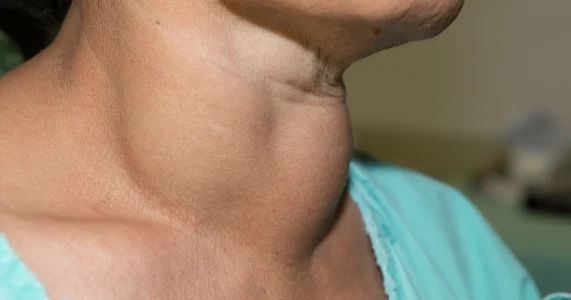Thyroid Neck Swellings

Thyroid Neck Swellings
Thyroid swellings or nodules are unusual growths that occur in the thyroid gland, situated in the front of the neck. Although the exact reason behind the gland’s abnormal growth is unknown, there are several causes that can be attributed to it. These include age, genetics, family history, pregnancy and iodine deficiency.
A common worry when it comes to thyroid nodules is the potential risk of it becoming cancerous. Often, au ultrasound scan and a tiny biopsy of the nodule is needed to ascertain if the nodule is benign (non-cancerous), has cancer potential, or frankly malignant ( cancerous).
Nodule biopsies can yield the following results:
- No diagnostic / inadequate
- Benign
- Atypia/ Follicular lesion of undetermined significance
- Follicular neoplasm/ suspicious for follicular neoplasm
- Suspicious for malignancy
Depending on the biopsy outcome and size of the lesion, our doctor at Aurion ENT will suggest management appropriate for your lesion. These may include repeat biopsy, interval observation, hemithyroidectomy surgery or total thyroidectomy surgery. Malignant thyroid nodules, known as thyroid cancer, come in different forms and the type of thyroid cancer treatment needs to be tailor made to the patient’s profile.
Investigation of Thyroid nodules
There are several investigations used to investigate and diagnose thyroid nodules. They include:
- Thyroid ultrasound: the ultrasound makes use of sound waves to identify whether a nodule is solid or filled with liquid. The ultrasound can also help observe the growth of the nodules and assist in biopsy of smaller or non-palpable nodules.
- Fine-needle aspiration cytology: in this procedure, the doctor uses a fine needle to extract a small sample of cells from the affected region, which is then sent to the lab for further examination. The lab results will then indicate whether the nature of the nodule whether it is benign or malignant
- Thyroid radio-isotope scans: during the scan, a small amount of radioactive iodine is orally taken, upon which the doctor examines how much of it absorbed by the normal thyroid tissue as well as the nodules. This helps identify the nature and degree of severity of the condition.
- Thyroid hormone level test: this is a blood test that examines the hormone levels secreted by the thyroid gland.



